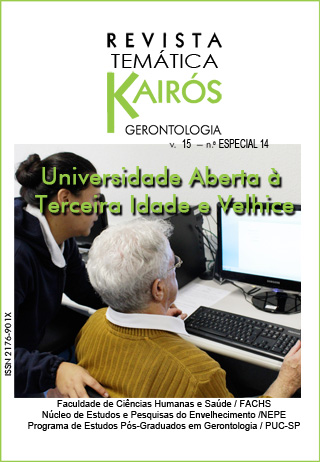Elderly Online: example of methodology for digital inclusion
DOI:
https://doi.org/10.23925/2176-901X.2012v15iEspecial14p215-234Keywords:
Elderly, Informatics, MethodologyAbstract
The intention of this study was to organize a workshop on introduction to computers, called Seniors Online. The workshop was organized into five modules: (1) Knowing the computer, (2) Activities with the mouse, (3) Activities with the keyboard, (4) and Internet (5) E-mail. The activities were conducted for 15 weeks with a weekly meeting of two hours. Participants were initially interviewed through a socio-demographic questionnaire, and at the end of the course were assessed using a script with five tasks related to content taught throughout the course. The elderly also answered a questionnaire that addressed semistructured questions concerning satisfaction, evaluation and attitudes toward computer workshop. The study included 22 elderly, 15 women and 7 men. Means and standard deviations (SD) age and education were found 67.55 (4.37) and 8.64 (4.10), respectively. Faced with the tasks proposed at the end of the workshop, most participants had good performance and high levels of satisfaction with the workshop. Variables such as age, education and income influenced on participants' performance. Thus, the introduction of extra hours of training can produce positive results in this group, inducing a similar performance to other members of the workshop. In this study, the results suggest that the acquisition of new knowledge and use of a new tool that is the computer connected to the Internet promotes positive gains relating to digital inclusion in the elderly.Downloads
How to Cite
Ordonez, T. N., Lima-Silva, T. B., Yassuda, M. S., & Cachioni, M. (2013). Elderly Online: example of methodology for digital inclusion. Revista Kairós-Gerontologia, 15(Especial14), 215–234. https://doi.org/10.23925/2176-901X.2012v15iEspecial14p215-234
Issue
Section
Papers


